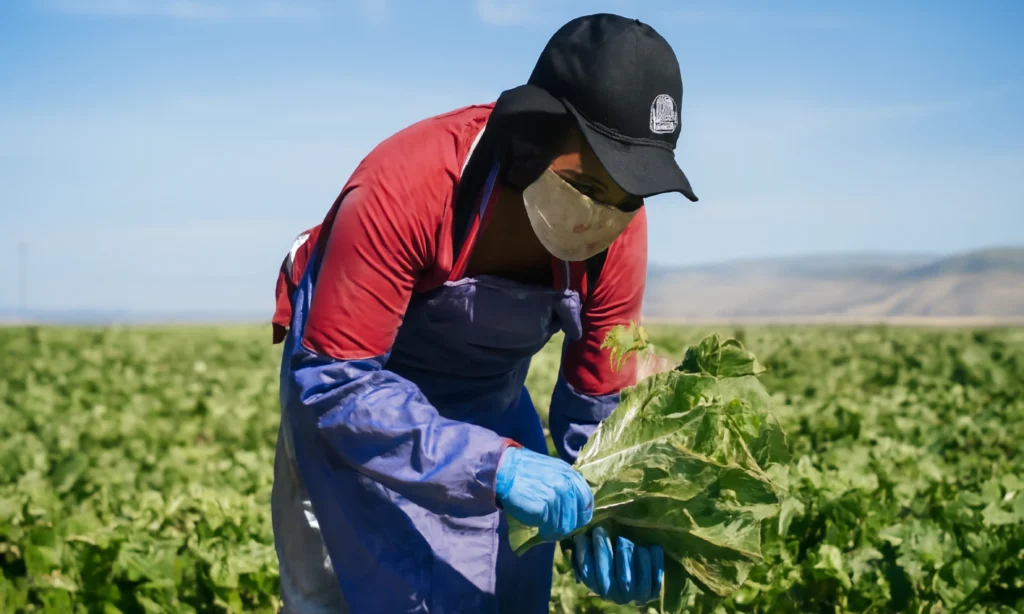Malta has also managed to maintain the agricultural industry as it has a Mediterranean climate and fertile land. There is a peak in the demand of agricultural harvest workers at specific times of the year and this provides a chance to both domestic and foreign laborers. In case you are interested in a short-term but beneficial job in the agricultural industry, there is a lot to consider. This guide will look at seasonal demand of agricultural harvest workers in Malta, the available positions, the skills needed, the expected salary and some practical tips on how to apply.
Seasonal Demand for Agricultural Harvest Workers in Malta
Malta has a Mediterranean climate whose agricultural calendar is based on the seasons with the highest demand during spring and autumn. The fruit, vegetable and other crops harvesting during such times needs a large number of workers to accomplish the job fast and effectively. Seasonal workers are often employed by farmers on short term basis, particularly when the work is more than what the permanent employees can manage.
The most common crops harvested in Malta are potatoes, tomatoes, grapes, oranges and melons. Since agricultural exports are a major part of Malta economy, the government and other private farming businesses tend to hire people in large numbers during harvest seasons.
It is not only the local workers who are needed. Since the agricultural labor force in Malta is comparatively small, foreign workers are used to cover a major gap in peak seasons. When you are out of Malta and need a short-term employment, you can engage in the agricultural production in the island which can be a productive experience.
Types of Roles Available
The harvest work involves diversified jobs. The most frequent jobs in Malta agricultural sector are as follows:
1. Field Laborers
The field workers are in charge of planting, sowing, harvesting, and weeding crops. It is a physically demanding job that requires attention to details since accuracy is valued in reducing crop waste.
2. Packaging and Sorting Workers
After the crops are harvested, they must be sorted according to size, quality and ripeness before they can be delivered to the markets. Packaging employees make sure that the produce is well boxed and labeled to be sold in the shop or shipped to other countries.
3. Farm Equipment Operators
It takes a special skill to operate tractors, harvest machines, and irrigation technology. Such positions would be most appropriate with people who have previous experience and credentials in operating farming machinery.
4. Supervisors and Foremen
Supervisors manage the activity of field workers and make sure that harvesting processes run in a smooth manner. They organize work, plan and regulate safety requirements.
5. Greenhouse Workers
Greenhouse workers usually perform such tasks as seeding, planting, and crop tending in controlled environments. This work is careful, and is sometimes less physically demanding than outdoor work.
6. Irrigation Specialists
The necessity to maintain irrigation systems to guarantee the best water distribution is a vital task. In this job, the workers deal with and address the problems of irrigation technology, which directly affects the crop yield.
Required Skills and Qualifications
To excel in any of these roles, physical fitness, technical and agricultural process knowledge are needed. The following are the required skills and qualifications of harvest workers in Malta:
Basic Requirements
- Good physical strength and stamina to work on repetitive and long hours outdoors.
- Understanding the harvesting process such as knowing when the crops are ripe.
- Knowledge about safety measures when operating a machine or in an uneven surface.
Technical Qualifications
- Certification on using farm machineries like balers and tractors.
- Knowledge of irrigation systems and green house technologies.
- Agricultural packaging and sorting system experience in warehouse position.
Most of the positions do not require formal education, although previous experience in farming is a significant plus. To foreigners, basic knowledge in English or Maltese can help greatly in communication at work.
Salary Expectations
The salaries of workers in Malta in the field of agricultural harvest depend on the position, experience, and duties. This is what you can expect in general:
- Field Workers: 5-7euros / hour
- Packaging Workers: 6 Euro-8 Euro/ hour
- Farm Equipment Operators: 9 eur-12 eur/hour
- Foremen and Supervisors: 10 -15 euros / hour
- Greenhouse Workers: 6 euros-9 euros per hour
Foreign workers who have a specialized skill, certifications or have a lot of experience might be able to negotiate higher wages. Also, most employers provide accommodation and meals, which lowers the cost of living of employees.
Tips for Applying for Agricultural Harvest Work in Malta
In case you are interested in working in the agricultural sector of Malta, here is how you can prepare and increase your chances of success in landing a seasonal job:
1. Create a Comprehensive Resume
List all your applicable skills, certifications and experience in your application. Any previous experience in the agricultural or other physically taxing fields should be highlighted.
2. Target Seasonal Employers
Study Maltese farms and cooperatives which currently seek seasonal employees. Look up vacancies in the internet at websites such as JobsPlus Malta or seasonal employment discussion boards.
3. Understand Work Permits and Visas
Applicants outside the EU have to acquire a visa and a working permit. This process is often supported by the employers when they have chosen their candidates, therefore, before you apply, ask them about the sponsorship.
4. Apply Early
The workers are in demand during the harvest season and the applications must be made earlier. The farmers usually start hiring a few months before the peak periods.
5. Complete Relevant Training
You may want to consider taking short term agricultural training courses in farm equipment or safety procedures. Certifications will provide you with competitive advantage.
6. Network Locally
Referrals and word of mouth can work, in the case of local agricultural communities. Connection with farmers and workers may result in opportunities that are not openly announced.
7. Prepare for a Labor-Intensive Role
It is important to be prepared mentally and physically. You should be prepared to work long hours (and sometimes in the sun) and do repetitive work. To be healthy during this challenging time, hydration and protective clothes are essential.
Why Work as an Agricultural Harvest Worker in Malta?
The agriculture industry in Malta does not only pay a salary, but also offers a cultural and professional experience. This is why this opportunity may be interesting to you:
- Seasonal Flexibility: The jobs are only seasonal, so they are a good option in case you want to find a temporary job or an additional source of income.
- Exposure to the Maltese Culture: The work on the farms offers a real life experience of the rural life on the island as well as Mediterranean farming.
- Food Supply Chain: Harvest workers are essential in the supply chain of food to the local and international communities.
- Competitive Benefits: Most of the farmers offer free or subsidized housing and other incentives to seasonal hires.
Final Thoughts
Working as an agricultural harvest worker in Malta is a way to get a short-term but fulfilling job and to live in a beautiful place in the Mediterranean. The industry offers employment to a wide range of skills, with positions ranging as far as field work and operation of farm equipment.
In case you are thinking of such an opportunity, begin preparing your application, sharpening your skills in that area and researching employers now. The seasonal demand implies that the jobs are time-sensitive, and early action may help you to obtain a position in the prosperous agricultural sector in Malta.
Make the initial step to a rewarding seasonal job- the harvest season in Malta could be your next shot!



